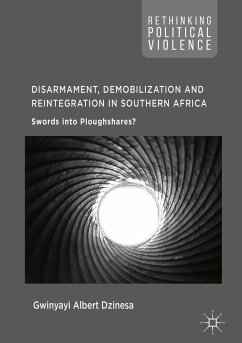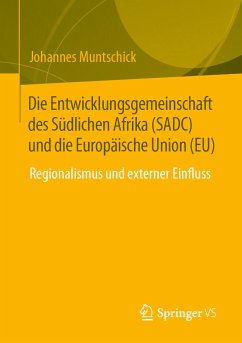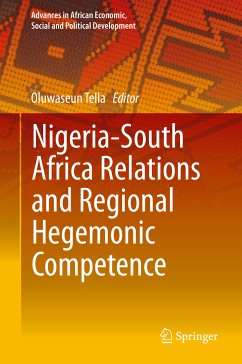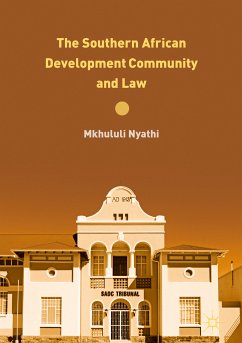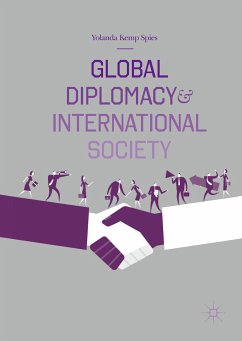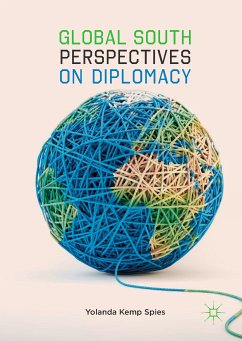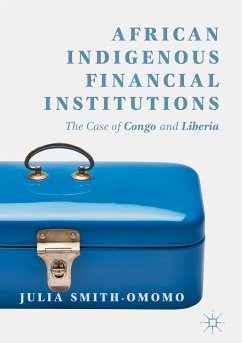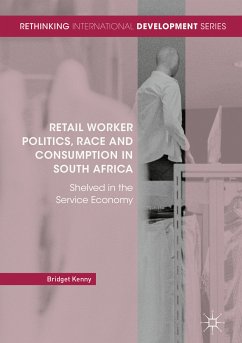
The Southern African Development Community (SADC) and the European Union (EU) (eBook, PDF)
Regionalism and External Influence
Versandkostenfrei!
Sofort per Download lieferbar
120,95 €
inkl. MwSt.
Weitere Ausgaben:

PAYBACK Punkte
60 °P sammeln!
This book explores regionalism in the Southern African Development Community (SADC) and highlights the influence of the European Union (EU) as an extra-regional actor on the organization and integration process. The analysis is guided by theory and explains the emergence, institutional design and performance of SADC's major integration projects in the issue areas of the economy, security and infrastructure. It provides in this way a profound assessment of the organization as a whole. The study shows that South Africa plays a regional key role as driver for integration while external influence ...
This book explores regionalism in the Southern African Development Community (SADC) and highlights the influence of the European Union (EU) as an extra-regional actor on the organization and integration process. The analysis is guided by theory and explains the emergence, institutional design and performance of SADC's major integration projects in the issue areas of the economy, security and infrastructure. It provides in this way a profound assessment of the organization as a whole. The study shows that South Africa plays a regional key role as driver for integration while external influence of the EU is ambivalent in character because it unfolds a supportive or obstructive impact. The author argues that the EU gains influence over regional integration processes in the SADC on the basis of patterns of asymmetric interdependence and becomes a 'game-changer' insofar as it facilitates or impedes solutions to regional cooperation problems.
Dieser Download kann aus rechtlichen Gründen nur mit Rechnungsadresse in A, B, BG, CY, CZ, D, DK, EW, E, FIN, F, GR, HR, H, IRL, I, LT, L, LR, M, NL, PL, P, R, S, SLO, SK ausgeliefert werden.



